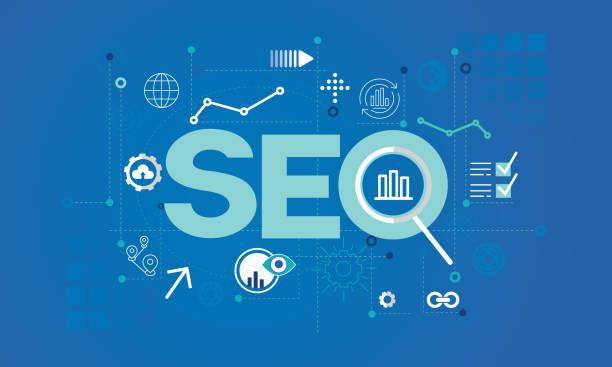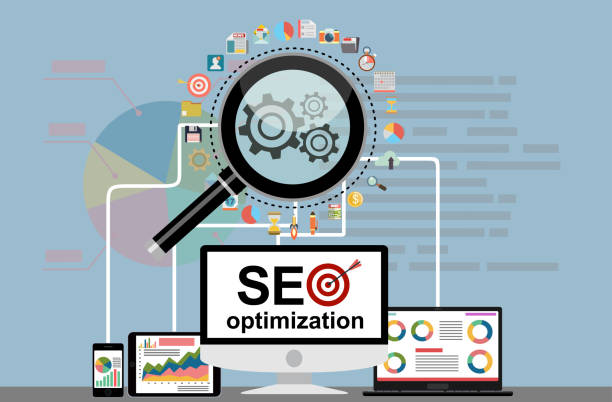Introduction to Technical SEO and its Importance

Technical SEO is an important part of website optimization for search engines.
This process involves improving the technical aspects of a website so that search engine crawlers can easily examine, index, and understand the site’s pages.
Good technical SEO not only helps improve site rankings but also provides a better user experience.
The importance of technical SEO lies in the fact that a website with excellent content but technical problems cannot be seen well in search results.
In fact, search engines like Google value websites that are technically sound and optimized.
This optimization includes page loading speed, responsive design, website security (HTTPS), and proper URL structure.
In summary, technical SEO provides the website’s infrastructure for overall SEO success.
Without a strong technical foundation, other SEO efforts, such as quality content creation or link building, may not yield the desired results.
Are you worried your company’s old website is driving away new customers? Rasaweb solves this problem with modern and efficient corporate website design.
✅ Increases your brand’s credibility.
✅ Helps attract targeted customers.
⚡ Contact Rasaweb for a free consultation!
Website Structure Review and Optimization for SEO

Website structure plays a vital role in SEO.
A logical and organized structure helps search engines easily find the site’s content and understand the importance of different pages.
This is beneficial not only for search engines but also improves user experience.
Creating a Hierarchical Structure: The website should have a clear hierarchical structure.
This means that more important pages should be at a higher level, and more detailed pages at lower levels.
This structure helps search engines understand the relationships between pages and determine the value of each page.
Using Internal Links: Internal links play an important role in website structure.
These links help search engines discover different pages of the site and understand the relationships between them.
Also, internal links help users navigate the site easily and find the information they need.
For example, linking to related pages in blog posts can be very useful.
URL Optimization: Website URLs should be short, descriptive, and include relevant keywords.
A proper URL helps search engines and users quickly identify the page’s content.
Increasing Page Load Speed and its Impact on SEO

Page load speed is one of the key factors in technical SEO.
Search engines like Google give higher scores to websites that load quickly.
Slow page load speed not only affects user experience but can also increase the bounce rate and consequently decrease the site’s ranking.
Image Optimization: High-volume images can reduce page load speed.
Optimizing images by reducing their size without losing quality can help improve site speed.
Using appropriate image formats such as JPEG or WebP is also recommended.
Enabling Compression: Compressing CSS, JavaScript, and HTML files can reduce their size and consequently increase page load speed.
Using tools like Gzip for file compression can be very effective.
Using a CDN: Using a Content Delivery Network (CDN) can help improve page load speed in different geographical regions.
A CDN stores website content on various servers worldwide and selects the closest server for users to access content.
Here is a table of factors affecting site load speed and their SEO importance:
| Factor | SEO Importance | Description |
|---|---|---|
| Image Optimization | Very High | Reducing image size without losing quality |
| Enabling Compression | High | Compressing CSS, JavaScript, and HTML files |
| Using a CDN | Medium | Distributing content across various servers to increase load speed |
| Code Optimization | Medium | Reducing code size and removing unnecessary code |
Mobile Optimization and Responsive Design

Mobile Optimization and Responsive Design are crucial aspects of technical SEO.
Given the increasing use of mobile devices for internet searches, Google prioritizes websites that are optimized for mobile.
Responsive design means your website should automatically adapt to the screen size of various devices (such as mobile phones, tablets, and computers).
Importance of Mobile-First Indexing: Google uses Mobile-First Indexing, meaning it considers the mobile version of your website as the primary source for indexing and ranking.
Therefore, if your website is not optimized for mobile, you may lose your ranking in search results.
Mobile Compatibility Test: Google offers a tool called Mobile-Friendly Test that allows you to check your website’s mobile compatibility.
This tool identifies potential issues and provides solutions to fix them.
Mobile Speed Optimization: Page load speed is even more important on mobile devices, as mobile users typically use slower internet connections.
Optimizing images, using a CDN, and enabling compression can help improve page load speed on mobile.
Did you know your company’s website is the first point of contact for 75% of potential customers?
Your website is the face of your brand. With **Rasaweb**’s corporate website design services, build an online presence that earns customer trust.
✅ Create a professional and lasting image for your brand
✅ Attract target customers and increase online credibility
⚡ Get a free consultation from **Rasaweb** experts!
Reviewing and Fixing Search Engine Crawl Errors

Crawl Errors are problems that prevent search engines from accessing your website’s pages.
Fixing these errors is essential to ensure that search engines can easily index your website.
Common crawl errors include 404 errors (page not found), server errors, and errors related to the robots.txt file.
Using Google Search Console: Google Search Console is a free tool that allows you to identify and fix your website’s crawl errors.
This tool provides useful information about how Google crawls your website and helps you identify and resolve potential issues.
Checking the Robots.txt File: The robots.txt file is a text file that tells search engines which pages of your website should not be crawled.
Ensure that this file is correctly configured and has not blocked any important pages.
Fixing 404 Errors: 404 errors occur when a page on your website does not exist.
To fix these errors, you can use 301 redirects to guide users and search engines to another related page.
You can also create a custom 404 page that helps users access other parts of your website. SEO is a critical issue.
Creating and Optimizing XML Sitemaps

An XML Sitemap is a file that contains a list of all the pages on your website.
This file helps search engines easily find and index all your website’s pages.
Creating and optimizing an XML sitemap is one of the important steps in technical SEO.
Importance of Sitemaps: An XML sitemap helps search engines find all pages, even if your website’s structure is complex.
This file is especially useful for large websites with many pages or newly created websites.
Creating a Sitemap: Various tools are available for creating XML sitemaps.
You can use these tools to automatically generate an XML sitemap.
After creating the sitemap, you should submit it to Google Search Console so that Google can access it.
Optimizing the Sitemap: Ensure that your sitemap is up-to-date and includes all important pages of your website.
Additionally, you can include extra information such as the last updated date and the priority of each page in your sitemap to help search engines identify more important pages. SEO and optimization are among the secrets to any website’s success.
Website Security and its Impact on SEO

Website Security is another important aspect of technical SEO.
Search engines prioritize secure websites.
Using HTTPS (Hypertext Transfer Protocol Secure) and an SSL certificate (Secure Sockets Layer) is essential for encrypting information between the user’s browser and the website server.
Importance of HTTPS: HTTPS not only enhances your website’s security but also helps improve your ranking in search results.
Google gives higher scores to websites that use HTTPS.
Installing an SSL Certificate: To use HTTPS, you must install an SSL certificate on your website server.
This certificate encrypts information between the user’s browser and the server, preventing unauthorized access to this information.
Software Updates: Ensure that all software used on your website (such as content management systems, plugins, and themes) is up-to-date.
Updating software helps address security vulnerabilities and protects your website from hacker attacks.
Here is a table of factors affecting site security and their SEO importance:
| Factor | SEO Importance | Description |
|---|---|---|
| HTTPS and SSL Certificate | Very High | Encrypting information and increasing website security |
| Software Updates | High | Fixing security vulnerabilities and preventing attacks |
| Using Strong Passwords | Medium | Protecting user accounts and preventing unauthorized access |
| Regular Backups | Medium | Recovering data in case of security issues |
Using Structured Data and Schema Markup

Structured Data and Schema Markup help search engines better understand your website’s content.
By using structured data, you can provide additional information about your website pages, such as content type, author, publication date, etc.
This information helps search engines display Rich Snippets, which can increase the Click-Through Rate.
Importance of Structured Data: Using structured data helps search engines better understand your website’s content and provide more relevant search results to users.
This can help improve your website’s ranking in search results.
Types of Schema Markup: Various types of schema markup are available that you can use for different types of content, such as articles, products, events, recipes, etc.
Choosing the appropriate type of schema markup for your content can help search engines provide more accurate information about your content.
Testing Schema Markup: Google offers a tool called Rich Results Test that allows you to test your website’s schema markup and ensure it is correctly implemented.
This tool identifies potential issues and provides solutions to fix them.
Worried about losing customers because you don’t have a professional e-commerce website?
With e-commerce website design by Rasaweb, forget these worries!
✅ Significant increase in sales and visitor-to-customer conversion rate
✅ Professional and user-friendly design that builds customer trust
⚡ Get a free consultation from Rasaweb
Optimizing Robots.txt File and Managing Bot Access

The robots.txt file is a text file that informs search engines which parts of a website should not be crawled and indexed.
This file is located at the root of the website and helps search engines optimize server resource consumption and prevent crawling unnecessary pages.
Optimizing the robots.txt file is very important for technical SEO.
Uses of the Robots.txt File: This file is used to block the crawling of duplicate pages, admin pages, low-value content pages, and large media files.
By blocking these pages, you can ensure that search engines focus on crawling and indexing your website’s important and high-quality pages.
How to Create and Edit the Robots.txt File: To create a robots.txt file, create a text file named robots.txt and place it in the root of your website.
In this file, you can specify various directives for search engines.
For example, you can use the User-agent directive to specify which search bots should follow these instructions and use the Disallow directive to specify which pages or folders should not be crawled.
Important Tips for Optimizing the Robots.txt File: Ensure that the robots.txt file is correctly configured and has not blocked any important pages.
Also, avoid blocking CSS and JavaScript files, as these files are essential for the proper rendering of your website pages. SEO is a complex science.
Continuous Monitoring and Evaluation of Technical SEO

Technical SEO is an ongoing process and requires continuous monitoring and evaluation.
By continuously monitoring and evaluating, you can quickly identify and resolve your website’s technical issues and ensure that your website is always optimized for search engines.
Using Google Search Console: Google Search Console is a powerful tool for monitoring and evaluating technical SEO.
This tool provides useful information about how Google crawls your website, crawl errors, security issues, and your website’s performance.
Using this information, you can identify and resolve your website’s technical issues.
Website Speed Monitoring: Website speed is an important factor in technical SEO.
By using various website speed monitoring tools, you can regularly check your website’s page load speed and take necessary actions to improve speed if needed.
Evaluating Responsive Design: Responsive design is very important for SEO and user experience.
By using mobile compatibility testing tools, you can ensure that your website is displayed correctly on different devices. SEO and improving a website’s ranking require significant effort and perseverance.
To succeed in SEO, you must be patient and continuously improve your website.
SEO and search engine optimization are the keys to success in the online world. By using SEO techniques, you can rank your website higher in search results and attract more traffic.
SEO is a complex process that requires knowledge and experience.
To perform SEO correctly, you must use various tools and techniques. The ultimate goal of SEO is to increase your website’s visitors and achieve a better ranking.
Frequently Asked Questions
| Question | Answer |
|---|---|
| What is SEO? | SEO, or Search Engine Optimization, is the process of increasing the quality and quantity of website traffic by improving the site’s ranking in natural (organic) search results of search engines like Google. |
| What are the main types of SEO? | SEO is divided into three main categories: On-Page SEO, Off-Page SEO, and Technical SEO. |
| What does On-Page SEO include? | On-Page SEO includes optimizing elements within the website, such as keywords, title tags, meta descriptions, content, URL structure, images, and internal links. |
| What is Off-Page SEO? | Off-Page SEO refers to activities outside the website that help improve its ranking, such as backlink building, social media marketing, and brand mentions. |
| What is Technical SEO? | Technical SEO deals with optimizing the technical aspects of a website to help it be better crawled and indexed by search engines. This includes site speed, mobile-friendliness, site structure, sitemaps, and the Robots.txt file. |
| What role do Keywords play in SEO? | Keywords are phrases that users enter into search engines. Proper and targeted use of relevant keywords in content and site elements helps search engines understand your page’s topic and display it for relevant searches. |
| What is a Backlink and why is it important? | A backlink, or inbound link, is a link from one website to another. Backlinks act as a “vote of confidence” from other sites for search engines and play an important role in the credibility and ranking of a site, especially if they are from reputable sites. |
| What impact does quality content have on SEO? | Quality, relevant, comprehensive, and unique content not only attracts and retains users but also shows search engines that your page is valuable. This helps improve rankings, reduce bounce rate, and increase user dwell time on the site. |
| Why is site load speed important for SEO? | Site load speed is an important ranking factor for Google. Faster sites provide a better user experience, have lower bounce rates, and are preferred by search engines. |
| Is SEO a one-time process? | No, SEO is an ongoing and long-term process. Search engine algorithms are constantly changing, competition is increasing, and site content also needs updating. Therefore, SEO requires continuous monitoring, analysis, and optimization. |
And other advertising services from Rasa Web advertising agency
Smart Social Media: A combination of creativity and technology to increase click-through rates through precise audience targeting.
Smart Link Building: A professional solution for analyzing customer behavior with a focus on using real data.
Smart Digital Branding: An effective tool for online growth with the help of attractive UI design.
Smart Direct Marketing: A creative platform to improve customer acquisition by customizing user experience.
Smart Advertorials: A new service to increase user engagement through attractive UI design.
And over hundreds of other services in internet advertising, advertising consultation, and organizational solutions
Internet Advertising | Advertising Strategy | Advertorial
Resources
Complete Technical SEO TrainingTechnical SEO ChecklistTechnical SEO GuideComprehensive Technical SEO Guide
? Rasaweb Afarin Digital Marketing Agency, your strategic partner for sustainable brilliance in the online space. By offering innovative solutions, including multilingual website design, we help your business transcend boundaries and shine in global markets.
📍 Tehran, Mirdamad Street, next to Bank Markazi, Kazeroun South Alley, Ramin Alley, No. 6



